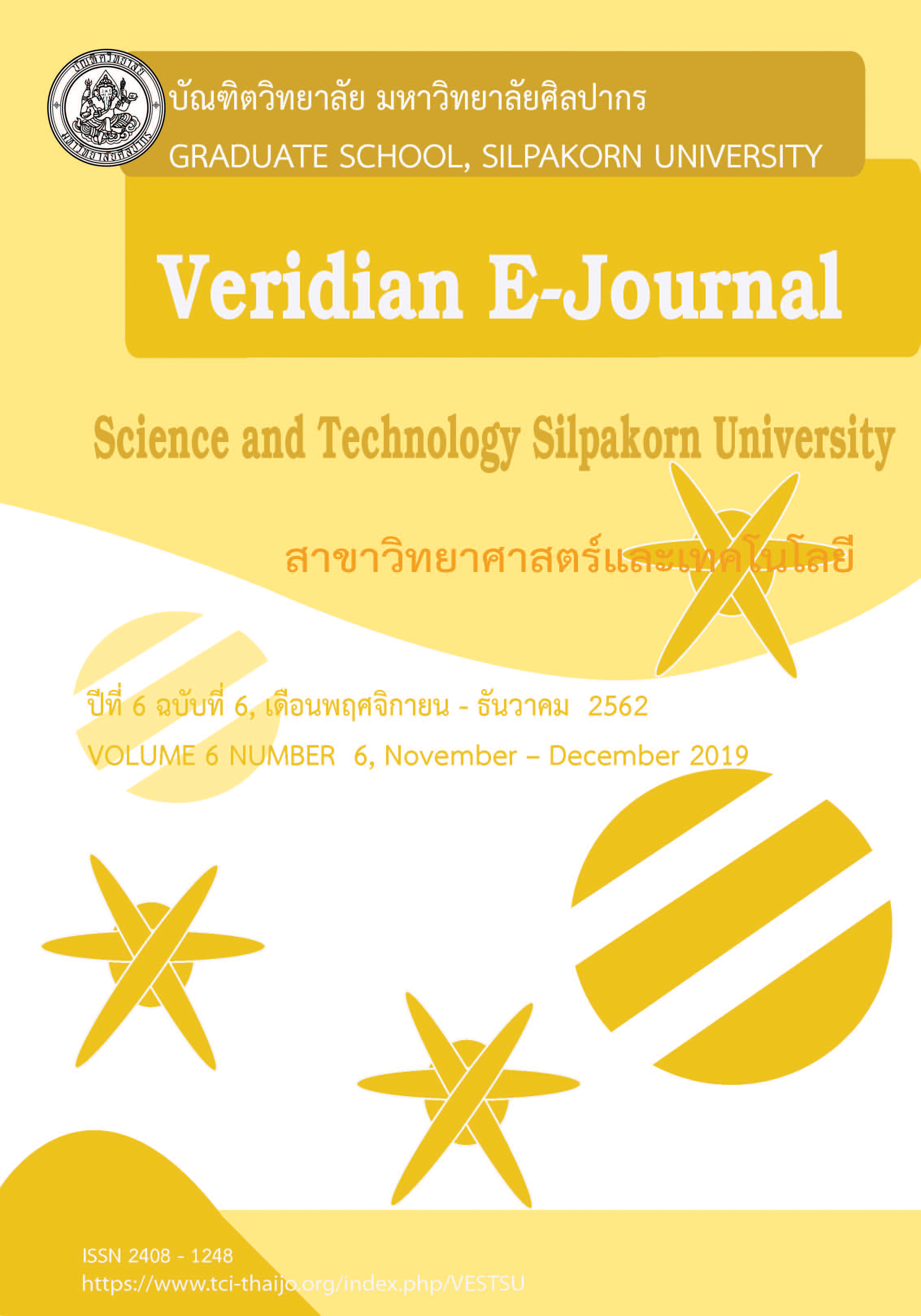The effect of plant residues and biochars on organic matter and nitrogen retention in soil
Main Article Content
Abstract
The excessive use of nitrogen fertilizer leads to soil pollution and groundwater contamination by nitrate leaching. Thus, understanding nutrient retention properties of a soil is important for managing nitrate contamination. The aim of this research was to study the effect of plant residues and biochars on organic matter and nitrogen retention in soil. One percentage (w/w) of each plant residue (mangosteen peel, mangrove bark and neem seed) or biochar (coconut shell, coconut husk and corncob) was incorporated into sandy loam soil amended with 5% (w/w) of nitrogen fertilizer. The pH, organic matter (OM), total nitrogen (TN), available ammonium (avail. NH4+) and available nitrate (avail. NO3-) of soil samples were analyzed every 7 days, while germination index (GI) of Chinese convolvulus seed (Ipomoea aquatic var. reptans) was determined once after soil amendment. The result showed that soil amended with coconut husk biochar had highest OM (1.98%), followed by corncob biochar (1.87%) and neem seed (1.84%). The highest avail. NH4+ of 34.93 mg N/kg was found in soil amended with coconut shell biochar, but the highest TN of 949.38 mg N/kg was obtained from soil amended with mangrove bark. Lower GI (87.13%) was observed in the former treatment indicating that seed germination can be affected by negative charge of volatile matter, although NH4+ adsorption in soil amended with coconut shell biochar is high. However, the latter treatment showed the lowest avail. NO3- and the highest GI of 45.00 mg N/kg and 123.68%, respectively. Therefore, nitrogen retention in soil amended with mangrove bark is high as phenolic compounds have potential inhibitory effect over nitrification process.
